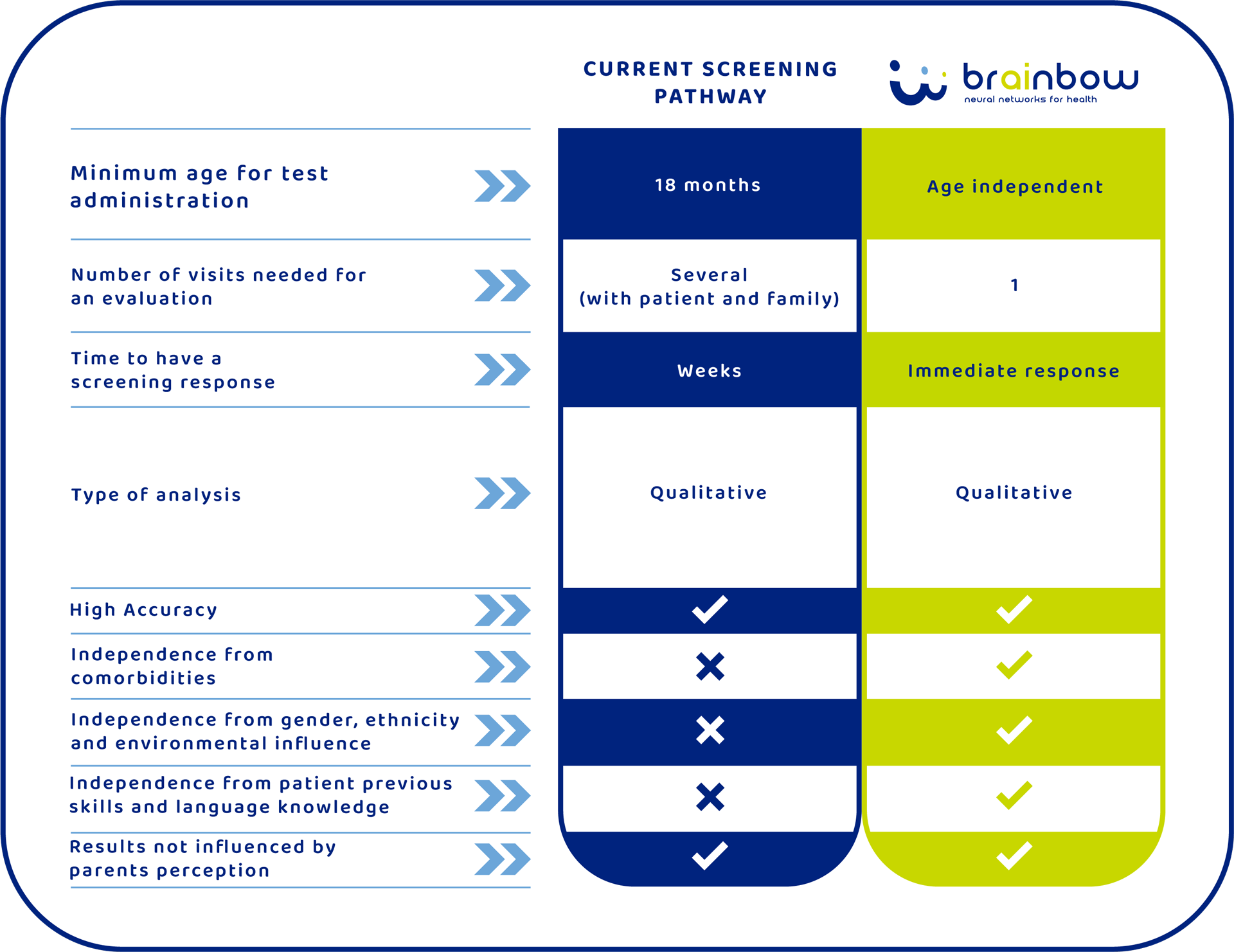Screening for autism spectrum disorder (ASD) in children is our pilot project.
In our preliminary tests, we have been able to accurately diagnose ASD, also differentiating it from other neuropsychiatric disorders.
The next milestone is to complete the validation of our algorithm on a larger sample through a retrospective study.
This will pave the way to the multicentric clinical trial for completing our clinical validation phase!

PROJECT
ASD diagnosis can runfaster than time
Problem
With an estimated global prevalence between 1% and 1.8%, Autism is a neurodevelopment specific disorder that compromises the neuropsychological development of the child.
Although toddlers may show early signs of autism before 12 months of age, it may take up to 4 years to come out with a conclusive diagnosis.
Apart from the lengthy and stressful diagnosis process, this keeps children from entering therapeutic paths when they are most effective, which would dramatically improve their current and future quality of life.


Solution
We have developed an INNOVATIVE SCREENING SYSTEM for autism, based on the automated analysis of a standard EEG.
By using our patented neural network-based feature recognition analysis, data are processed and compared with a continuously growing dataset of EEGs, which allows to detect the specific characteristics of ASD in the EEG signal.
Our system has proven to be >93% accurate regardless of age, race, gender, being also suitable for pre-screening, i.e. preliminary analysis of children under 18 months of age.
Retrospective tests have been performed on more than 190 patients, including ASD, controls, patients with neuropsychiatric disorders other than ASD and children under 37 months. [2].
-
Grossi, E., Olivieri, C., & Buscema, M. (2017). Diagnosis of autism through EEG processed by advanced computational algorithms: A pilot study. Computer methods and programs in biomedicine, 142, 73-79.
-
Grossi, E., Buscema, M., Della Torre, F., & Swatzyna, R. J. (2019). The “MS-ROM/IFAST” model, a novel parallel nonlinear EEG analysis technique, distinguishes ASD subjects from children affected with other neuropsychiatric disorders with high degree of accuracy. Clinical EEG and Neuroscience, 50(5), 319-331.











2022
Reliability through validation
Validation on a statistically relevant number of already diagnosed patients, with the aim of differentiating different neurological disorders and pathologies from autism.
2023
Pilot projects
Pilot project for diagnosing autism in children over 3 years old, in conjunction with tests already used in clinical practice (MCHAT, ADOS, ADI-R, etc.).
Pilot project for predictive screening of autism in children under 3 years of age who have not yet been diagnosed or whose diagnosis has not yet been confirmed.
2024
Entry market 1st test
Market introduction of the first automated test for the diagnosis of autism for children over 3 years old.
2025
Research for other disease
Retrospective study to extend our system to other neurological diseases such as Alzheimer's and Parkinson's to be able to detect early signs when are not yet recognizable by other screening techniques.
2026
Entry market 2nd test
Market introduction of the first automated test for the predictive diagnosis of autism in children under 3 years of age.

